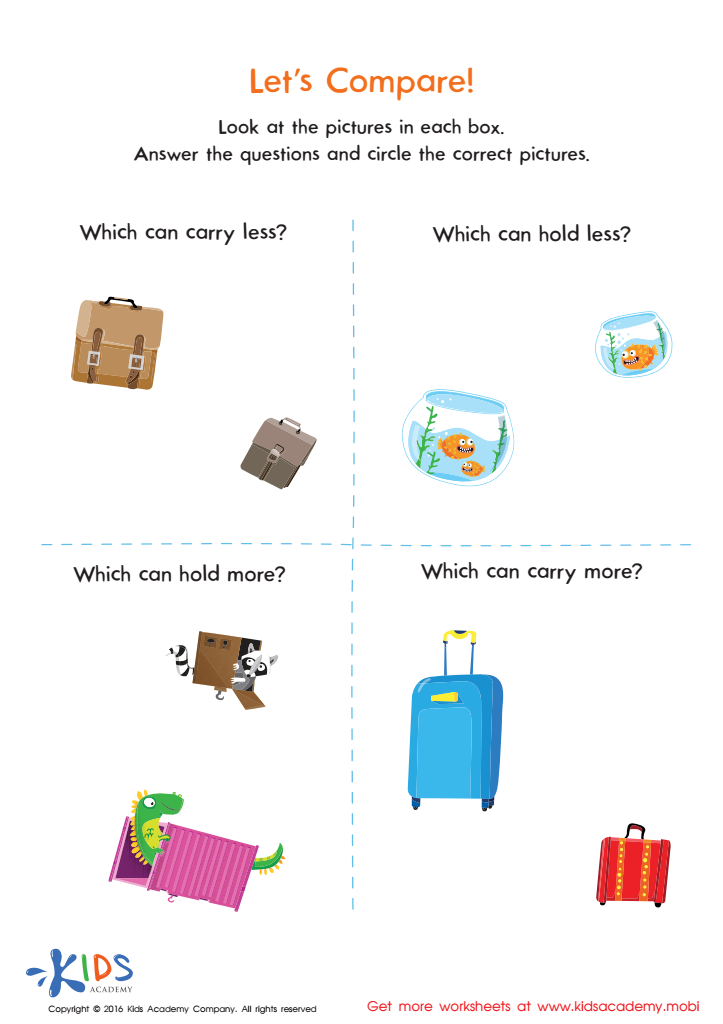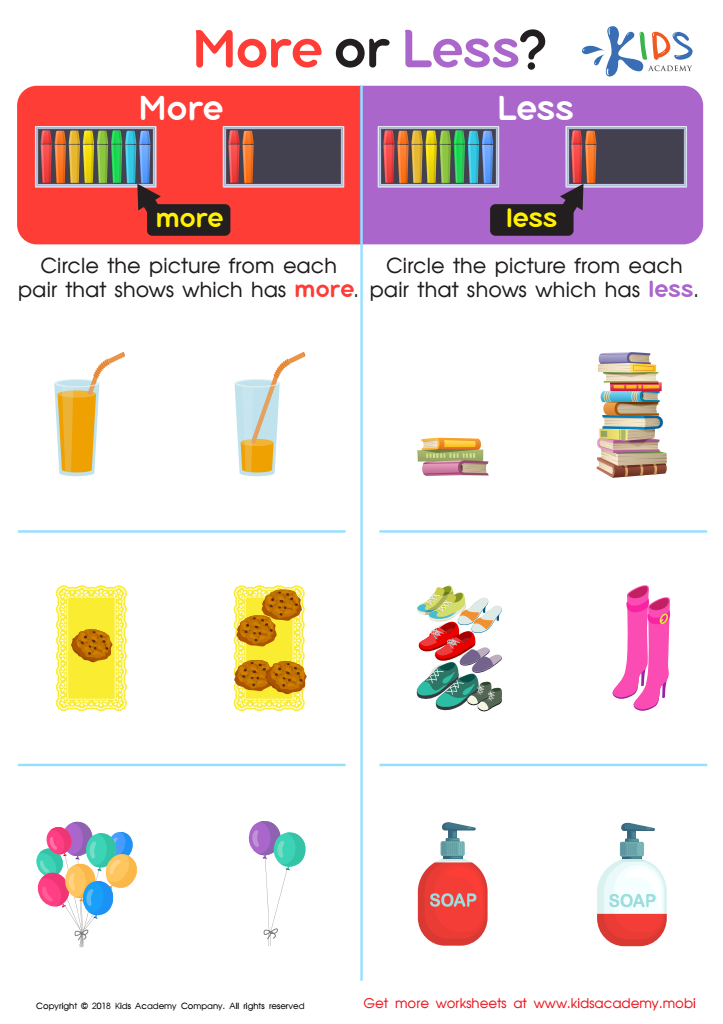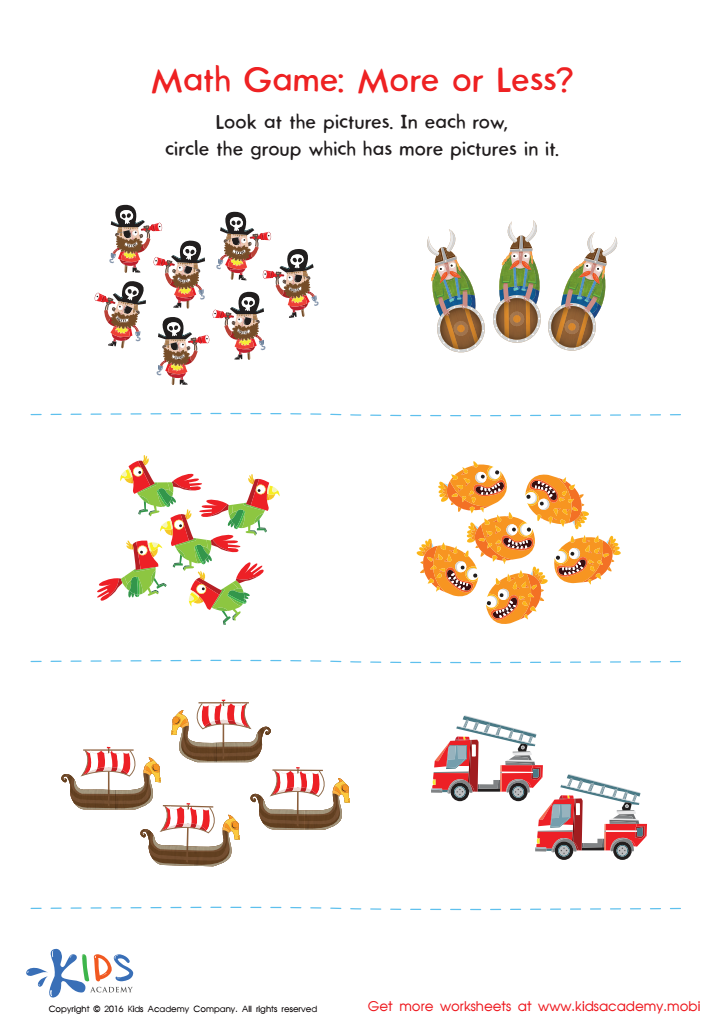Number comparison skills Worksheets for Ages 3-5
3 filtered results
-
From - To
Introduce your little learners to the world of numbers with our engaging Number Comparison Skills Worksheets for Ages 3-5. Designed specifically for preschool and kindergarten children, these fun and educational printables help kids master the concepts of greater than, less than, and equal to. Each worksheet features vibrant illustrations and simple activities that capture young imaginations while building essential math skills. Perfect for at-home learning or classroom use, our number comparison worksheets provide a strong foundation for further mathematical development. Set your child on the path to numerical success with these interactive and enjoyable resources!


Let's Compare Worksheet: Big or Small


More or Less? Worksheet


More or Less Worksheet
Number comparison skills are crucial for young children aged 3-5 because they form the foundation for essential math competencies needed throughout their academic journey and daily life. When children learn to compare numbers, they develop a strong sense of quantity, which is vital for understanding more complex numerical concepts later on.
Firstly, these skills promote cognitive development by enhancing a child’s ability to analyze differences and relationships between quantities. This analytical approach strengthens their problem-solving abilities and critical thinking. For instance, recognizing that four is more than three or understanding which of two groups of objects is larger supports their logical reasoning skills.
Moreover, fostering number comparison at an early age boosts children's confidence in handling numbers, setting a positive attitude towards math learning. Early exposure reduces math anxiety, a common hurdle in later school years, and helps children feel more competent and engaged.
Parents and teachers can incorporate playful activities like comparing groups of toys or counting everyday items, making learning interactive and fun. Integrating these skills into daily practice ensures that children receive a solid grounding that will aid in comprehending more advanced math topics, such as addition, subtraction, and even early multiplication and division, thus contributing to their overall academic success.

 Assign to My Students
Assign to My Students





.jpg)










